- Home
- Treatment
Treatment Designed for You.
Get in touch with Absolute Awakenings today and begin your journey to long-term healing & recovery. - What We Treat
An Experience in Healing
Get in touch with Absolute Awakenings today and begin your journey to long-term healing & recovery. - About
The Rehab You've Been Looking For
Get in touch with Absolute Awakenings today and begin your journey to long-term healing & recovery. - Tour
- Resources
Don't Wait Another Day.
Get in touch with Absolute Awakenings today and begin your journey to long-term healing & recovery. - Admissions
The Rehab You've Been Looking For
Get in touch with Absolute Awakenings today and begin your journey to long-term healing & recovery. - Contact
(866) 627-0196
3000 NJ-10, Morris Plains, NJ 07950
admissions@absoluteawakenings.com
Schedule a Tour Now
Get in touch with Absolute Awakenings today and begin your journey to long-term healing & recovery.
Begin Your Journey Now
Begin Your Journey Now
- Home
- Treatment
Treatment Designed for You.
Get in touch with Absolute Awakenings today and begin your journey to long-term healing & recovery. - What We Treat
An Experience in Healing
Get in touch with Absolute Awakenings today and begin your journey to long-term healing & recovery. - About
The Rehab You've Been Looking For
Get in touch with Absolute Awakenings today and begin your journey to long-term healing & recovery. - Tour
- Resources
Don't Wait Another Day.
Get in touch with Absolute Awakenings today and begin your journey to long-term healing & recovery. - Admissions
The Rehab You've Been Looking For
Get in touch with Absolute Awakenings today and begin your journey to long-term healing & recovery. - Contact
(866) 627-0196
3000 NJ-10, Morris Plains, NJ 07950
admissions@absoluteawakenings.com
Schedule a Tour Now
Get in touch with Absolute Awakenings today and begin your journey to long-term healing & recovery.
New Jersey Dual-Diagnosis Rehab
Dual-Diagnosis Program
- Written By: Amanda Stevens, B.S.
- Reviewed By: Dr. Po-Chang Hsu, M.D., M.S.
- Updated:
- Published:
- Reading Time: 7 minutes
If you are looking for a dual-diagnosis treatment center in New Jersey, we can help.
Dual-Diagnosis Treatment in NJ
Restore Your Mind, Body & Spirit
Table of Contents
Struggling with a mental health condition or substance abuse disorder can feel suffocating. When you’re experiencing both, it can be almost unbearable.
But you were not born to feel this way. There is a better way to live.
At Absolute Awakenings, we believe in treating the whole person, physically, emotionally, psychologically, and spiritually. If you are struggling with co-occurring disorders, we’re here to help you recover from both so that you can live the life you were meant to.
Dual-Diagnosis Programs
Our Services
Detox Placement
Residential Inpatient
Partial Hospitalization
Intensive Outpatient
Outpatient Program
Aftercare & Alumni
Understanding dual-diagnosis
What is a Co-Occurring Disorder?
Many individuals diagnosed with a substance use disorder also suffer from a co-occurring mental health condition. When these conditions occur together, it is known as dual diagnosis.
About half of individuals with a mental health disorder will also suffer from substance use disorder and vice versa. These conditions can exacerbate each other, and individuals often turn to alcohol or other drugs as a form of self-medication to find relief from symptoms.
However, alcohol and drug use can worsen the symptoms of mental health conditions and lead to addiction, resulting in the need for intervention.
An integrative treatment plan that addresses co-occurring addiction and mental health issues is crucial for individuals with a dual diagnosis.
Common Dual-Diagnosis Conditions
Some of the most common mental disorders linked to substance abuse will include:
Individuals with Attention Deficit Hyperactivity Disorder (ADHD) are at risk for abusing drugs or alcohol as a way to cope with their symptoms. Individuals who are prescribed stimulants to treat their ADHD may find them habit-forming, which may lead to a toxic pattern of substance abuse.
About half of individuals with bipolar disorder will struggle with substance abuse. Like any other mental health disorder, it can be extremely tempting to self medicate to soothe the symptoms.
Taking drugs and alcohol can provide a source of temporary relief from emotional situations and manic episodes for individuals with bipolar disorder, but can exacerbate symptoms in both the short and long term. Those using drugs to self-medicate during a manic episode often experience a mental health crisis that requires hospitalization.
Study shows that drug addiction and Borderline Personality Disorder (BPD) will often occur simultaneously. More than 66% of individuals with BPD have turned towards substance abuse to cope with their symptoms.
One in ten adults in the United States have reported suffering from depression. Many individuals diagnosed with depression will try to self medicate with alcohol or drugs. This will often make the problem much worse.
Obsessive-Compulsive Disorder (OCD) causes obsessions and compulsions such as irrational fear of contamination or checking (and rechecking) things like door locks or stovetops. Those suffering from this mental health condition may turn to drug abuse to manage uncomfortable symptoms.
When an individual develops Post-Traumatic Stress Disorder(PTSD), the brain will produce fewer endorphins than a healthy mind, which makes them more likely to start using drugs and alcohol to feel “normal” again. The U.S. The Department of Veteran Affairs states that nearly 75% of soldiers and veterans experiencing a traumatic or violent event during combat are known for repetitive alcohol abuse and drug addiction.
how to know if someone has dual-diagnosis
The Signs & Symptoms of Co-Occurring Mental Illness
Symptoms of co-occurring disorders can vary, depending on the mental health condition diagnosis. For co-occurring disorders to exist, one or more must be present.
Some symptoms of substance abuse include:
- Risk-taking
- Sudden changes in behavior
- Using drugs or alcohol despite dangerous circumstances
- Developing a high tolerance and withdrawal symptoms
- The feeling of “needing” drugs or alcohol to function
- Intense cravings
Mental health condition symptoms will vary significantly. There are warning signs such as mood changes, problems concentrating, avoiding all social activities, and suicidal thoughts.
If you or a loved one are experiencing a mental health crisis or suicidal ideations, do not wait to get help. Hospitalization may be necessary. Dial 911.
We Accept With Most Major Insurance
If you or a loved one is ready to get help but finances are holding you back, give us a call. We can work with your health insurance provider.







How Does Dual-Diagnosis Happen?
What are the Causes of Dual-Diagnosis?
Several factors can agitate mental health or substance use disorder which includes:
Substance abuse can cause symptoms that mimic mental illness symptoms. For example, using excess marijuana gives rise to psychosis in some individuals, which is a severe mental disorder that causes individuals to hallucinate.
An individual’s genetics can also make them more likely to develop a mental health disorder or addiction. Research shows that family genes make up to 60% of an individual’s susceptibility to addiction.
A traumatic event, persistent anxiety, or chronic stress can kickstart a mental health disorder or a drug addiction.
Individuals experimenting with alcohol or drugs at a young age may develop mental health disorders and a substance-abuse problem later on.
Which Comes First, Mental Illness or Substance Abuse?
Some individuals will develop an addiction to alcohol or substances before they’ve been diagnosed with a mental disorder. Others will become addicted to alcohol or other substances after acquiring a mental health disorder diagnosis.
Regardless of which happens first, it is critical to find a treatment facility which will target both disorders simultaneously rather than separately.
Stories of Hope & Healing
Hear from Our Alumni
A jewel among many local drug and alcohol rehab treatment centers in Denville, New Jersey, the care and treatment options you’ll receive at Absolute Awakenings is second to none. From not knowing if you’ll ever feel in control again to being confident in the path you’re on, we are invested in YOU every step of the way.
Best Dual-Diagnosis Rehab in NJ
Learn More About Our New Jersey Dual-Diagnosis Facility
Absolute Awakenings Dual-Diagnosis Facilities
Facility Address
- 3000 NJ-10, Morris Plains New Jersey 07950
Start Your Journey
Begin Your Journey to Long-Term Healing
Change Your Future With a Single Call.
Yes, You Can Get Your Life Back...
With our trained and compassionate professionals in your corner, freedom can be yours. All it takes is you choose yourself. Choosing a better tomorrow.
The Absolute Awakenings Difference
Choosing the Best New Jersey of Dual-Diagnosis Rehab Program
When choosing a rehab center, it is vital to choose one that specializes in both substance use disorder and behavioral health. This will ensure the most effective care, along with the most significant potential of a healthy lifestyle.
An outpatient rehab facility for co-occurring disorders provides individualized treatment plans that are the most conducive to healing. Usually, individuals with co-occurring disorders will seek treatment in various states of distress and declining general health.
The combination of neglected mental health and substance abuse requires both mental health treatment and the expertise of an addiction treatment center.
At our Dual Diagnosis Treatment Center in Denville, New Jersey, we believe that dual diagnosis treatment programs should treat the whole person. That’s why in addition to our behavioral health interventions, we offer adjunct evidence-based therapies such as yoga therapy, Muay Thai, Art Therapy, and other holistic-healing based modalities.
Top-Rated Dual-Diagnosis Treatment Center in NJ
Heal Your Body, Mind & Spirit at Our NJ Dual-Diagnosis Rehab Center
We’re here with you every step of the way.
If you or a loved one is showing signs of addiction and a co-occurring disorder, it is time to let our treatment specialists at Absolute Awakenings to help you through this process.
Seeking treatment for mental health disorders and substance abuse disorders simultaneously can be one of the most significant decisions you’ll make for your health.
Choose wellness. Choose life. Choose YOU. Contact a member of our admissions team for Dual Diagnosis treatment NJ today and explore our holistic mental health and substance abuse treatment options.
© Copyright 2024. All Rights Reserved. AATC.
- Terms & Conditions
- Privacy Policy



